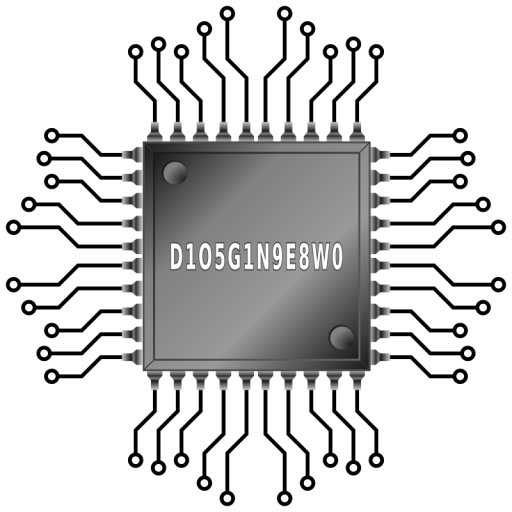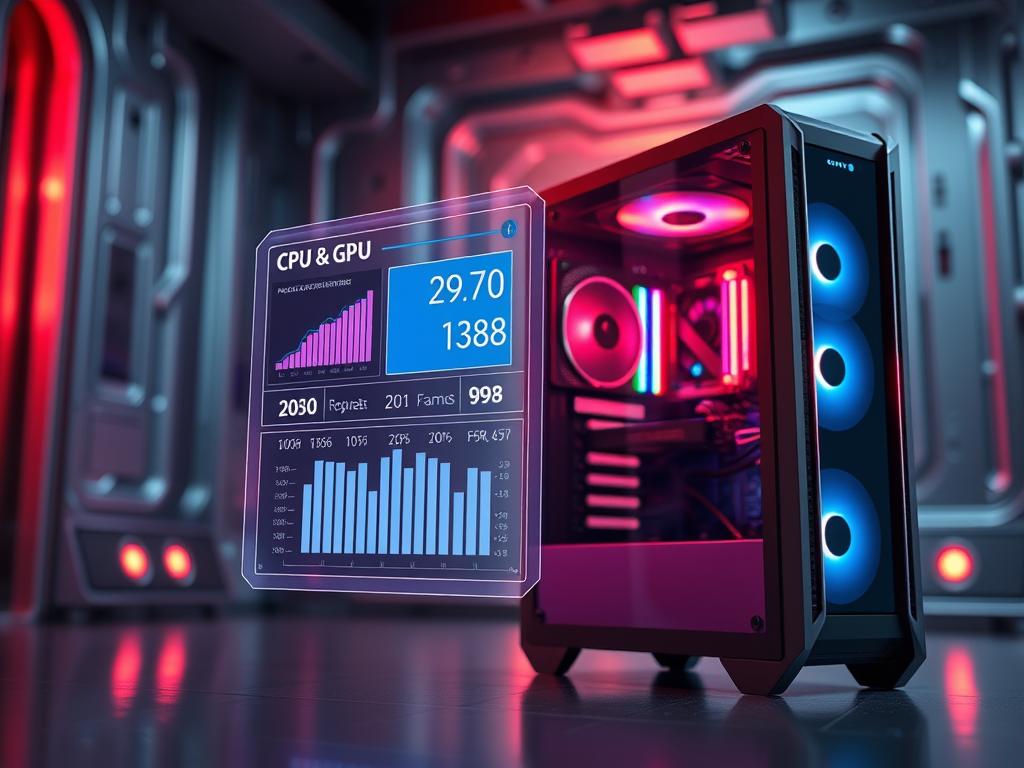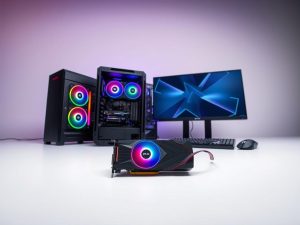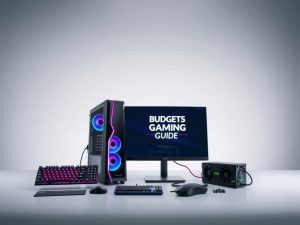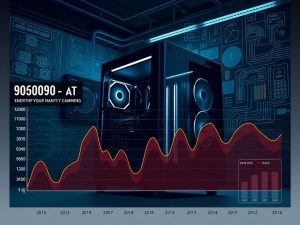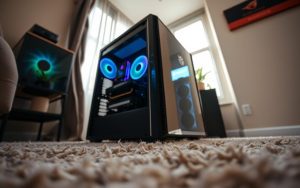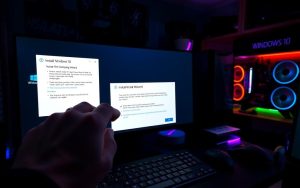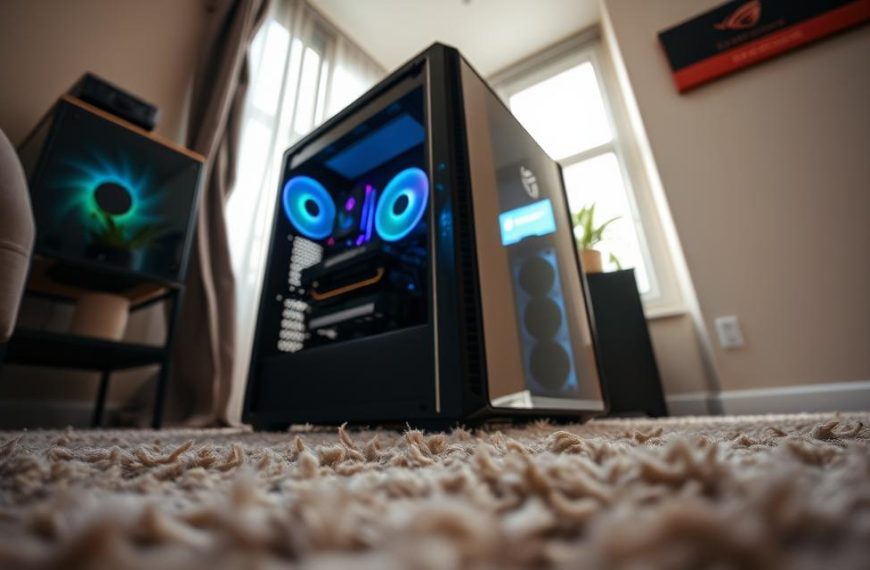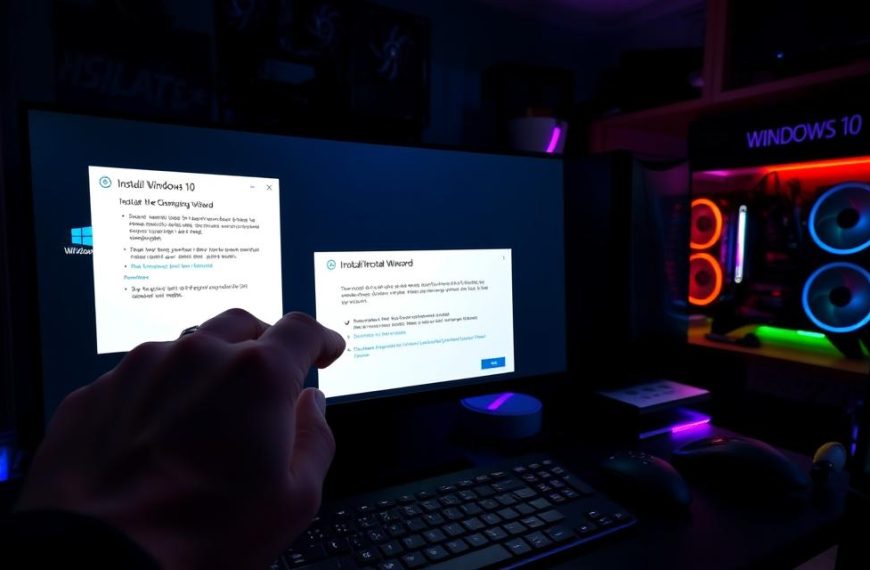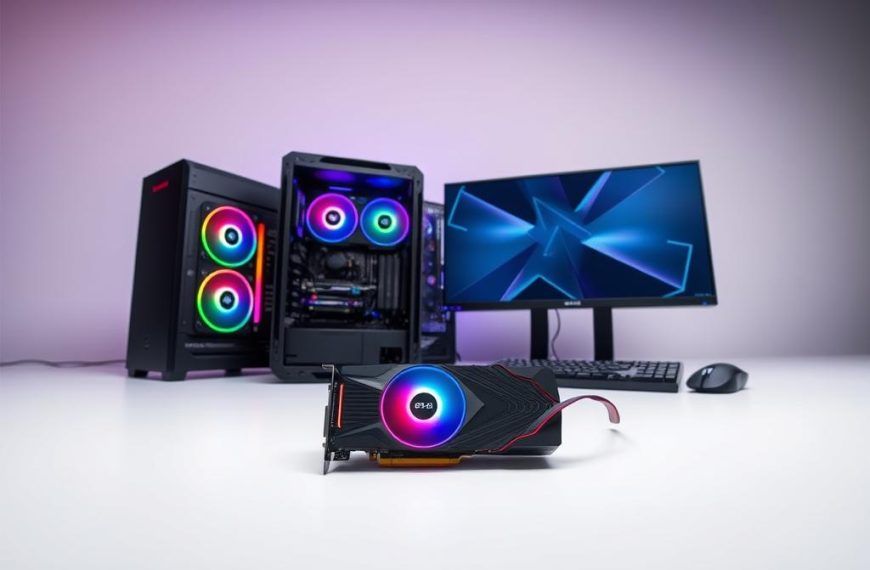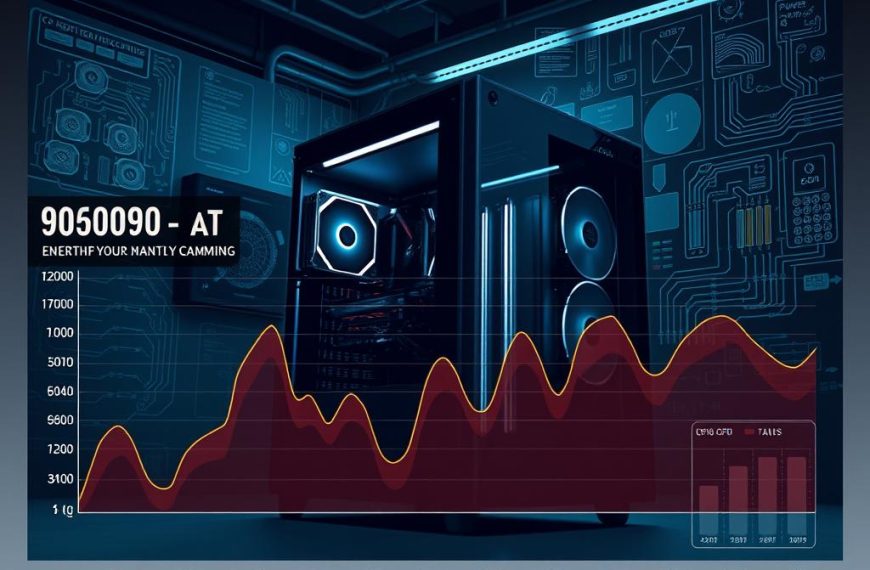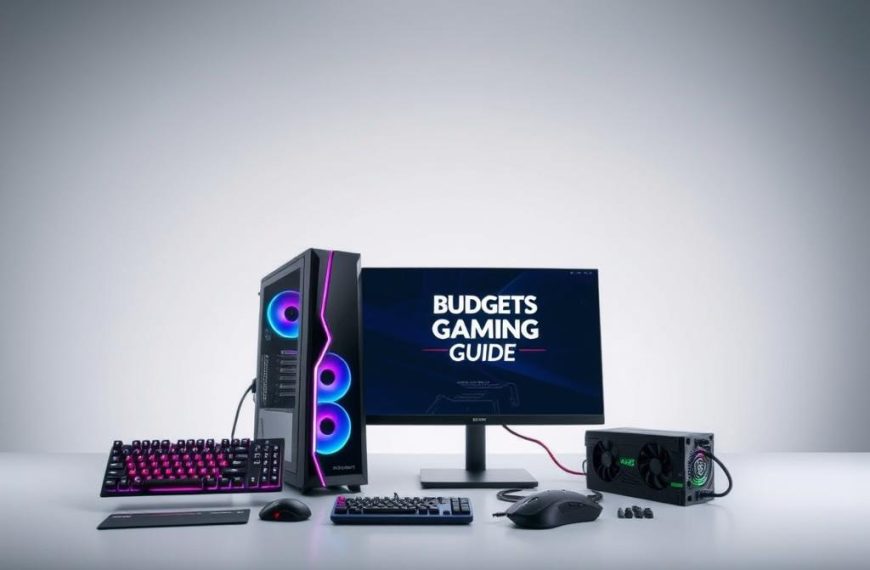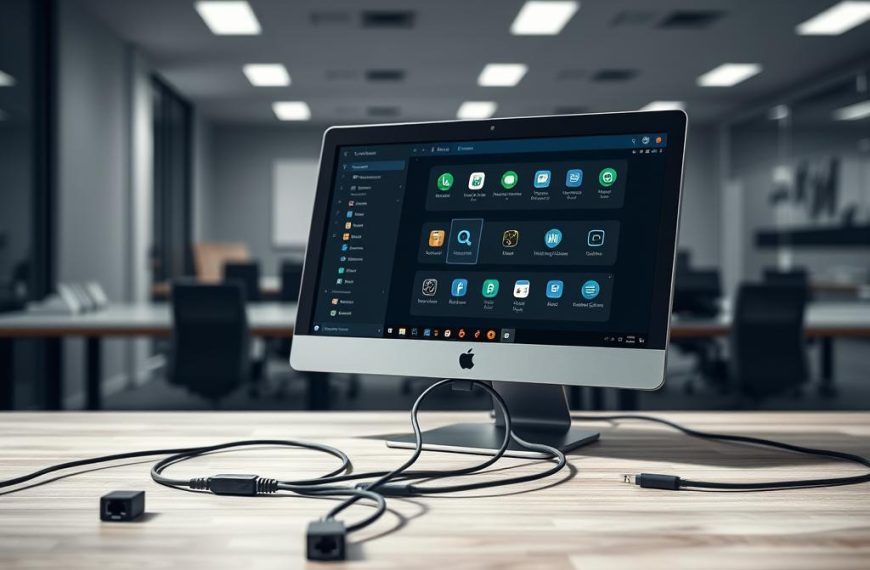Understanding gaming PC specs can be tricky. PCGameBenchmark compares your system to thousands of others. It gives you a precise performance score for your computer.
Gaming PC specs aren’t just numbers. They show how well your computer can handle games. Knowing your PC’s strengths can greatly improve your gaming experience.
Assessing computer performance isn’t about having pricey gear. It’s about understanding how each part affects your gaming. Every component plays a vital role in delivering top-notch performance.
Modern games need strong hardware. Recommended specs include 6 CPU cores, 16GB RAM, and 8GB VRAM. These ensure your system can run the latest titles smoothly.
Gaming PCs come in various price ranges. Budget options start at $500, while high-end systems can cost up to $5,000. This offers different performance levels for various needs.
Finding the right balance between performance and cost is key. Systems priced between $1,500 and $2,000 often provide the best value. They deliver high-quality gaming without emptying your wallet.
Understanding Basic Gaming PC Components
A great gaming PC needs the right mix of core components. The CPU, GPU, and RAM work together to create an amazing gaming experience.
These three parts are crucial for top-notch system performance. They determine how well your gaming PC will run.
- Central Processing Unit (CPU)
- Graphics Processing Unit (GPU)
- Random Access Memory (RAM)
Processor Speed and Performance
The CPU is the heart of any gaming system. High-end processors like the Intel Core i7-13700K offer excellent gaming and productivity.
When choosing a CPU, look at clock speed, core count, and heat management. These factors affect how well your games will run.
| CPU Feature | Recommended Specifications |
|---|---|
| Minimum Cores | 6-8 cores |
| Base Clock Speed | 3.4 GHz – 4.0 GHz |
| Cooling Requirements | Liquid or High-Performance Air Cooling |
Graphics Card Considerations
The GPU is key for stunning visuals in games. The GeForce RTX 4070 Ti is a solid choice for high-detail gaming at 1440p resolution.
Memory and RAM Requirements
RAM affects how well your system can multitask. Current recommendations suggest 16GB as a minimum for gaming, with 32GB providing optimal performance.
Fast DDR4 or DDR5 memory can greatly improve your system’s capabilities. More RAM allows for smoother gameplay and better multitasking.
| RAM Specification | Recommended Configuration |
|---|---|
| Minimum Capacity | 16GB |
| Ideal Configuration | 32GB (2x16GB modules) |
| Memory Speed | 3200 MHz – 4000 MHz |
Are These Good Specs for a Gaming PC
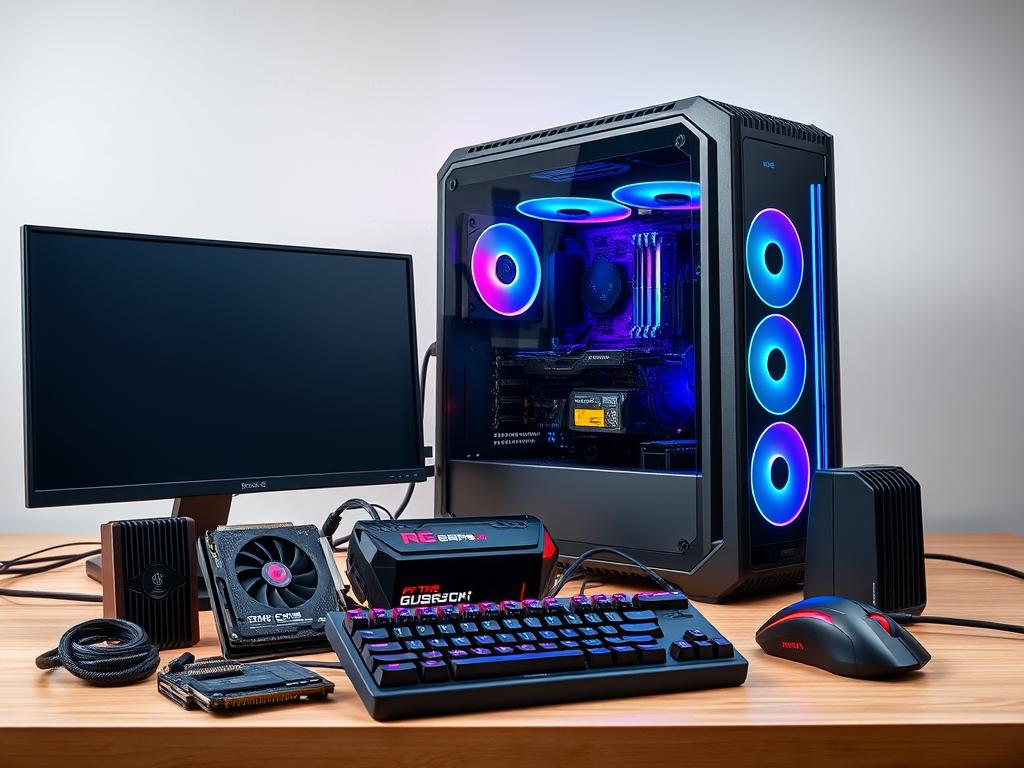
Choosing the right gaming PC specs requires careful assessment of parts and performance. A balanced system is crucial for smooth gameplay in demanding titles. Modern gamers need a rig that can handle the latest games.
Key performance indicators for gaming PCs include:
- Minimum RAM: 16GB (ideal for future-proofing)
- Storage: 1TB SSD for operating system and primary games
- Graphics card: NVIDIA GeForce RTX 4060 or AMD Radeon RX 7600
- Processor: Intel Core i5 or AMD Ryzen 5
Component compatibility is vital for an optimal gaming setup. A well-matched system prevents any part from becoming a performance bottleneck. For example, a high-end graphics card needs a suitable processor to reach its full potential.
Budget plays a key role in building a gaming PC. Entry-level rigs start at £749, while midrange systems cost about £2,100. High-end setups can exceed £3,000, offering top-notch performance for serious gamers.
Important performance metrics to consider include:
- Frame rates in popular games
- Graphics card VRAM (8GB for 1080p, 16GB for 4K)
- CPU core count (6-8 cores recommended)
- Monitor refresh rate (144Hz or higher)
Pro tip: Always check game-specific requirements and benchmark results to ensure your system meets the desired performance standards.
Essential Tools for PC Performance Assessment
Gamers and tech enthusiasts can use various tools to understand their computer’s capabilities. These PC performance tools offer insights into system performance. They help users navigate hardware detection and benchmark software.
Modern benchmark software analyses go beyond basic specs. These apps help users spot system strengths and weaknesses. They provide a thorough look at how a computer performs.
Hardware Detection Software
Several tools excel in hardware detection and system analysis:
- CPU-Z: Provides detailed processor and motherboard information
- Speccy: Offers comprehensive system component details
- HWInfo: Delivers in-depth hardware monitoring capabilities
Benchmark Testing Applications
Benchmark software measures performance across various system parts. It gives precise data on how well components work.
| Tool | Key Features | Performance Metrics |
|---|---|---|
| 3DMark | Gaming performance tests | Frame rates, DirectX performance |
| Geekbench | Cross-platform benchmarking | CPU and GPU performance |
| Cinebench | Rendering performance | OpenGL and CPU capabilities |
System Performance Monitoring Tools
Real-time monitoring tools like HWMonitor and MSI Afterburner track system health. They provide crucial insights into how your PC is working.
These tools monitor:
- Temperature readings
- Voltage levels
- Clock speeds
- Fan performance
Understanding your system’s performance is the first step towards optimising your gaming experience.
Graphics Card Performance Metrics
GPU benchmarks are vital for gamers wanting top graphics performance. They reveal detailed info about a graphics card’s abilities beyond basic specs.
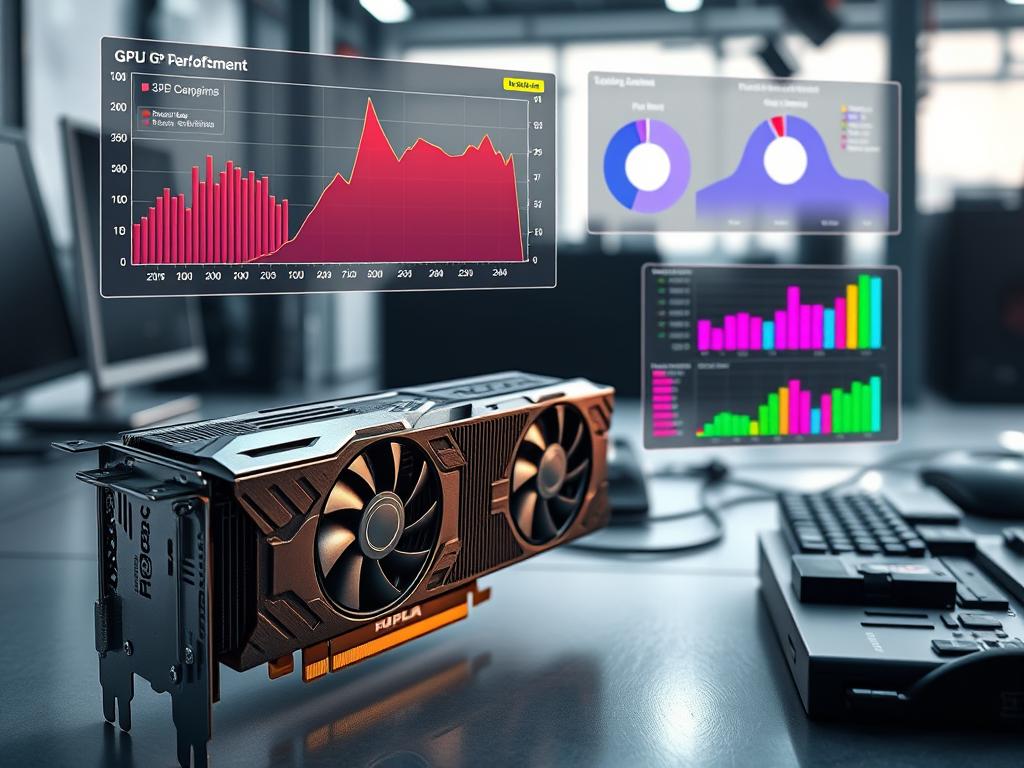
Key metrics help assess a graphics card’s real gaming potential. These include shader count, memory bandwidth, clock speeds, and Video RAM (VRAM).
- Shader count
- Memory bandwidth
- Clock speeds
- Video RAM (VRAM)
Pro GPU benchmarks offer deep insights into graphics card performance. The GeForce RTX 4090 boasts 16,384 shaders and 24GB GDDR6X memory.
It delivers an impressive 1008GB/s throughput. This shows its remarkable capabilities in the gaming world.
| Graphics Card | Shaders | Memory | Bandwidth |
|---|---|---|---|
| GeForce RTX 4090 | 16,384 | 24GB GDDR6X | 1008GB/s |
| Radeon RX 7900 XTX | 6,144 | 24GB GDDR6 | 960GB/s |
| GeForce RTX 4080 Super | 10,240 | 16GB GDDR6X | 736GB/s |
Benchmark testing applications like 3DMark and Superposition offer standard performance checks. These tools help gamers grasp graphics card abilities across various scenarios.
When judging GPU performance, look at thermal design power, memory use, and clock speeds. Better performance often means more power use and heat output.
Memory Configuration and Optimisation
RAM optimisation and memory configuration are vital for unleashing your gaming PC’s potential. The right setup can boost gameplay smoothness and reduce load times. A well-tuned memory system can truly elevate your gaming experience.
Gaming memory needs have changed greatly in recent years. Today’s games require more complex memory setups for top performance.
RAM Slots and Channel Configuration
Most gaming systems use dual-channel memory configurations for best results. This method involves specific steps for optimal performance.
- Installing RAM modules in paired slots
- Matching memory modules for optimal synchronisation
- Ensuring consistent speed across memory channels
Memory Speed vs Latency
| RAM Speed | Latency | Gaming Performance Impact |
|---|---|---|
| 3200 MT/s | CL16 | Good baseline performance |
| 4000 MT/s | CL18 | Enhanced responsiveness |
| 6000 MT/s | CL30 | Premium gaming experience |
Optimal RAM Capacity for Gaming
Choosing the right RAM capacity is key for meeting gaming memory needs:
- 16 GB: Minimum recommended for modern games
- 32 GB: Ideal for multitasking and future-proofing
- 64 GB: Recommended for professional gamers and content creators
Mastering these memory setup principles allows gamers to fine-tune their systems. This knowledge helps achieve peak performance and responsiveness in gaming rigs.
Conclusion
Mastering gaming PC assessment requires strategy and knowledge. Understanding hardware upgrades can transform your computing experience. The Intel Core i9-14900K, with its 24 cores, offers impressive gaming potential.
Optimising a gaming PC isn’t just about buying expensive parts. It involves careful component selection and performance testing. Benchmark apps and monitoring software are essential tools in this process.
Knowledge is key, whether building your own or buying a pre-made system. It’s not just about specs, but how each part enhances your gaming experience.
Take on the challenge of creating your ideal gaming rig. With research and passion, you can build a system for exceptional performance. Your efforts will lead to unforgettable gaming moments.
